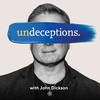

Undeceptions with John Dickson
Undeceptions Ltd
Every week on Undeceptions we’ll explore some aspect of life, faith, history, culture, or ethics that is either much misunderstood or mostly forgotten. With the help of people who know what they’re talking about, we’ll be trying to ‘undeceive ourselves’ and let the truth ‘out’.
Episodes
Mentioned books
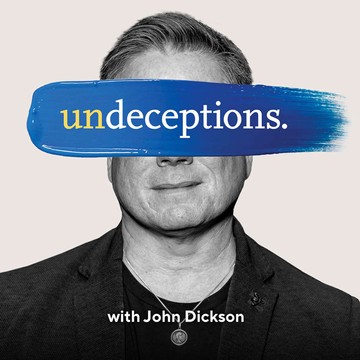
Apr 7, 2022 • 16min
Introducing: Small Wonders with Laurel Moffatt
The Joshua Tree National Park in California is a good starting place for Laurel Moffatt's reflection on our struggles to see the light.The park is full of interesting characters as well as a compelling number of stars - most of which are invisible to the outside world. Because of the amount of artificial light we use each night, more than a third of people can no longer see the Milky Way.But the brightness of the light in deep darkness can show us how faint, how small, how very weak and narrow our own attempts at lighting our own way are.LINKSPaul Bogard, The End of Night: Searching for Natural Darkness in an Age of Artificial Light.Emily Dickinson, “I saw no Way – The Heavens were stitched –” Fr633 (1863) J378Fabio Falchi, et al. “The new world atlas of artificial night sky brightness”, Science Advances, 10 Jun 2016, Vol 2, Issue 6WHAT IS SMALL WONDERS?The clarity the desert brings. Hurricanes and hard relationships. Finding reason in the middle of a ruin. Small Wonders are quiet but profound observations about life from Dr Laurel Moffatt. In each fifteen-minute episode, Laurel uncovers lessons learned from broken and beautiful things that are polished to perfection and set in rich audio landscapes for your consideration.
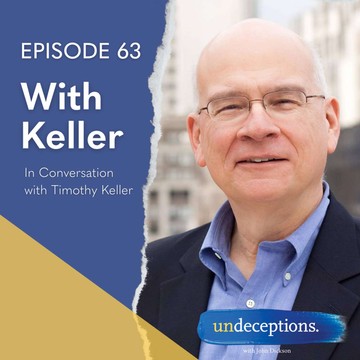
Apr 3, 2022 • 1h 5min
63. With Keller
Tim Keller, the founding pastor of Redeemer Presbyterian Church and a bestselling author, discusses the complexities of faith in today’s secular world. He dives into how skepticism shapes modern belief and the church's evolution in the New York landscape. Keller tackles contemporary views of hell, justice, and sexuality, emphasizing the need for dialogue amidst changing ideals. He also reflects on compassion, personal health challenges, and finding hope in uncertainty, providing fresh clarity for believers and skeptics alike.
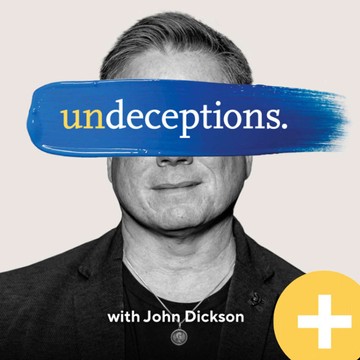
Mar 31, 2022 • 1min
Become an Undeceiver
This season, we’re launching Undeceptions Plus which offers exclusive bonus content to members - who we’re calling our ‘Undeceivers’. For a small monthly fee - just AU$5 a month - you can unlock uncut interviews, extra question and answer sessions, and peeks behind our creative process as we put the shows together. Don’t worry – all our regular episodes will remain free and available for everyone. But in becoming an Undeceiver, you’re really helping us to keep the show sustainable and thriving. We’d love to have you with us. It’s really easy, so head to undeceptions.com/plus for more.
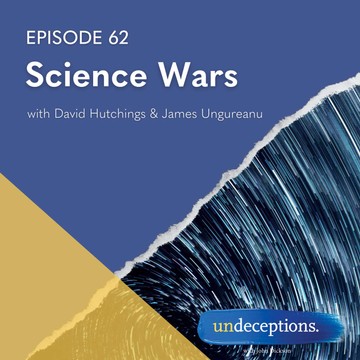
Mar 27, 2022 • 1h 9min
62. Science Wars
This episode was sponsored by Zondervan’s new book Religious Freedom in a Secular Age by Michael F. Bird.Visit the undeceptions.com for more content, including the full show notes for this episode.Follow the show on Facebook, Twitter and InstagramEmail the show with your comments / feedback: admin@undeceptions.comUndeceptions is the flagship podcast of Undeceptions.com: Letting the truth out.Theme music: JS Bach's Cello Suites, Prelude, performed by the Undeceptions Band. Hosted by John DicksonProduced by Kaley Payne Directed by Mark Hadley Audio Editing by Richard HamwiSocial Media by Sophie HawkshawAdministration by Lyndie LevistonCopyright Undeceptions Ltd 2022
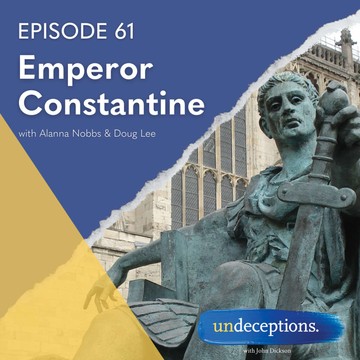
9 snips
Mar 20, 2022 • 1h 17min
61. Emperor Constantine
This episode was sponsored by Zondervan's new book Rembrandt is in the Wind by Russ Ramsey.For the full show notes for this episode head to Undeceptions.com.

Mar 13, 2022 • 26min
No Coward single
Greg Sheridan is one of Australia's most influential foreign affairs analysts, as well as an acclaimed author. In short, he's not afraid of sharing an opinion. He and John Dickson take a stroll through his latest book, Christians: The urgent case for Jesus in our world, and take a close look at the key elements of the faith.Greg bravely shares how he thinks the Christian faith makes perfect sense to the rational mind.
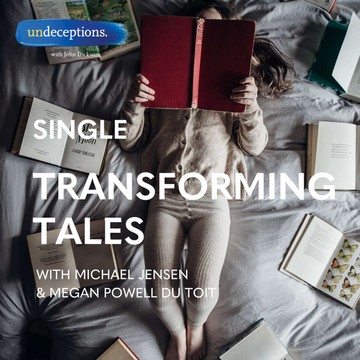
Feb 27, 2022 • 16min
Transforming Tales single
Undeceptions is proud to announce that the popular podcast, With All Due Respect, is joining the network as of today.To mark the occasion hosts Megan Powell du Toit and Michael Jensen have crafted a single about the power of storytelling to transform lives.You can find out more about their awesome show over at The WADR Project website.
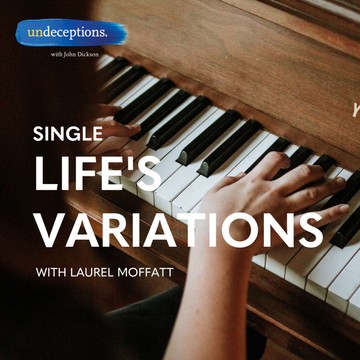
Feb 13, 2022 • 12min
Life's Variations single
It's our first season in the run down to Season 6 of Undeceptions, and John Dickson asks friend of the show Laurel Moffatt to share some uncommon wisdom earned from teaching her daughter music during the COVID lockdown.Laurell tells us how listening to Bach's Goldberg Variations - the way they chop and change but still stay the same - has given her a new way of viewing life during a pandemic.

Feb 6, 2022 • 14min
The Log In Our Eye
John Dickson's Bullies and Saints is a super-podcast providing excerpts of the book by the same name - a no-holds-barred look at the best and worst of church history.In this final episode of the Bullies And Saints super-series, John Dickson reflects on Jesus' instruction to His disciples to look at the log in their own eyes before reflecting on others' shortcomings and asks whether this might equally apply to those outside the churchClick here to buy a copy of Bullies and Saints, or here to own the entire audiobook.And for even more on the history of Christianity, and how well the church is mirroring the message that Jesus handed on, head over to the Undeceptions website.

Jan 30, 2022 • 12min
The Not-So-Dark Ages
John Dickson's Bullies and Saints is a super-podcast providing excerpts of the book by the same name - a no-holds-barred look at the best and worst of church history.In this episode, John up-ends a four-hundred-year-old fallacy that has been promoted since the Enlightenment: the Christian faith is a brake on scientific and literary progress. The Dark Ages - were they really that dark?Click here to buy a copy of Bullies and Saints, or here to own the entire audiobook.And for even more on the history of Christianity, and how well the church is mirroring the message that Jesus handed on, head over to the Undeceptions website.


